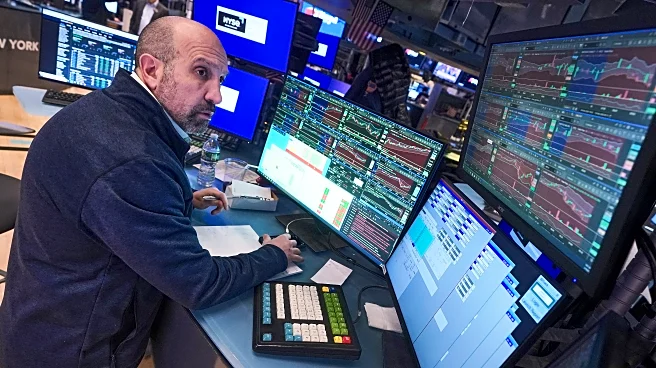What's Happening?
The film 'Mother,' directed by Teona Strugar Mitevska and starring Noomi Rapace as Mother Teresa, has garnered significant international interest following its premiere at the Venice Film Festival. The movie, set in Kolkata in 1948, explores seven critical days in the life of Mother Teresa as she seeks to establish a new religious order. Kinology has successfully sold distribution rights to various countries, including France, Germany, Italy, and several others, highlighting the film's global appeal. Mitevska's portrayal of Mother Teresa challenges traditional saintly perceptions, presenting her as a complex figure with ambitions akin to a CEO.
Why It's Important?
The film's international sales underscore the global interest in stories that offer nuanced portrayals of historical figures. By presenting Mother Teresa as a multifaceted character, the film invites audiences to reconsider the conventional narratives surrounding her life and work. This approach may influence future biographical films to adopt more critical and humanizing perspectives. Additionally, the film's success could bolster Kinology's reputation in the international film market, potentially leading to more diverse and ambitious projects.
What's Next?
As 'Mother' continues to attract international buyers, its distribution across various regions will likely increase its visibility and impact. The film's reception could spark discussions about the portrayal of religious figures in cinema, influencing filmmakers and audiences alike. Furthermore, the success of 'Mother' may encourage Kinology to pursue similar projects that challenge traditional narratives and explore complex character studies.
Beyond the Headlines
The film's portrayal of Mother Teresa as a 'CEO-like' figure raises questions about the intersection of ambition and spirituality. This depiction challenges viewers to consider the ethical dimensions of leadership within religious contexts. It also prompts a broader conversation about the role of women in positions of power, both historically and in contemporary society.











